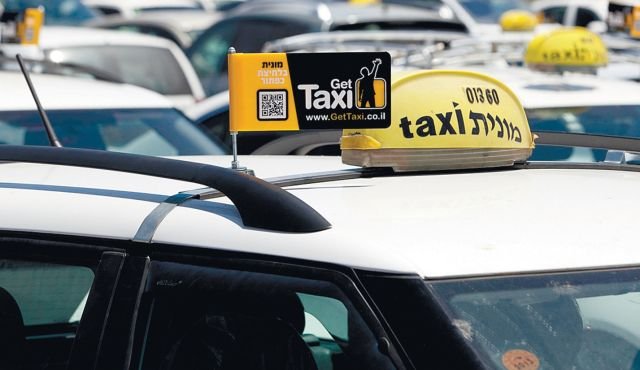Transportation app company Gett announced today that it had become "operationally profitable" in December 2019, but what lies behind that headline? Gett said that it was "now operationally profitable across each of its Transportation, Delivery, and Shuttle product lines," but the announcement relates to the results of December 2019 only, and to "consolidated all countries EBITDA of $0.3 million (before fixed central and R&D cost)." If that phrase confuses you, it's not your fault: Gett used accepted terms such as operating profit and EBITDA, but not in accepted ways.
EBITDA (earnings before interest, tax, depreciation and amortization) is a term normally used in annual and quarterly financial statements, but Gett has chosen to report its "operating profitability" for just one month. Talking to "Globes", representatives of Gett used the description "operating profit", a more transparent accounting term, since it does not discount all those items (in simple terms, operating profit is revenue minus cost of sales, R&D costs, sales and marketing costs, and administrative and general costs). In the case of neither term is it customary to omit R&D costs, particularly in the case of a technology company, in which R&D costs are part of routine expenditure.
In its statement, Gett presents a graph of what it calls "Consolidated all countries EBITDA (before central and R&D cost)" showing a positive figure of $0.3 million for December 2019. The way Gett arrives at this item is by calculating separately the profit on its business activity in all the territories in which it operates and totaling them. Business activity includes: travel services, dispatch services, and business shuttle services. But Gett does not deduct R&D expenses from this figure, and still chooses to announce that it has reached operating profitability. Can R&D expenses be discounted? Probably not. The algorithm and user experience need to be improved all the time, to make sure the competition is not leaving the company behind.
What is the norm in the industry? Uber, which is a competitor of Gett, reports its financial data in a similar way. In a presentation that Uber distributed to investors, it shows its activity broken down into separate areas: Uber Eats, shared transport, carpooling and so on. Like Gett, Uber discounts various expenses, but unlike Gett, Uber then deducts its R&D expenses to arrive at its adjusted EBITDA.
According to the graph in Gett's release, operating results before R&D expenses in December of previous years were losses in the millions of dollars: $3.5 million in December 2018, $9.5 million in December 2017, and $13.5 million in December 2016. The switch from loss to profit before R&D is apparently connected to the closure of Juno, which Gett announced last November.
Gett bought Juno in 2017 for $200 million, and transferred all its activity in New York to the brand. According to reports in the US media, Juno made losses, and Gett sought a buyer for it during 2019. At the same time as the closure of Juno, Gett also announced collaboration with Lyft in New York. This collaboration is due to get underway this year, allowing Gett's business customers to order shared rides from Lyft using Gett's app, through their business accounts. Gett said that the move was designed to support the IPO it plans for the first quarter of 2020, postponed from December 2019.
Gett was founded in 2010 by Roy Mor and Dave Waiser, and began as a taxi-hailing app. Over time it expanded, and today the company is active in Israel, Russia, the UK and the US, and has over 15,000 business customers. It has had to deal with tough competition for its taxi-hailing service from ride-sharing services, and so in recent years it has entered tangential areas where competition is less fierce, such as focusing on business customers, and its dispatch service.
"With the global roll-out of our 10th generation of B2B product in 2020, we will change the way corporates travel, create a new industry standard and introduce the most advanced technology in the space," Waiser is quoted as saying in Gett's announcement. "Becoming profitable in our operations globally bears testament to the strength of our business model and reinforces our position as the leading corporate transportation service."

